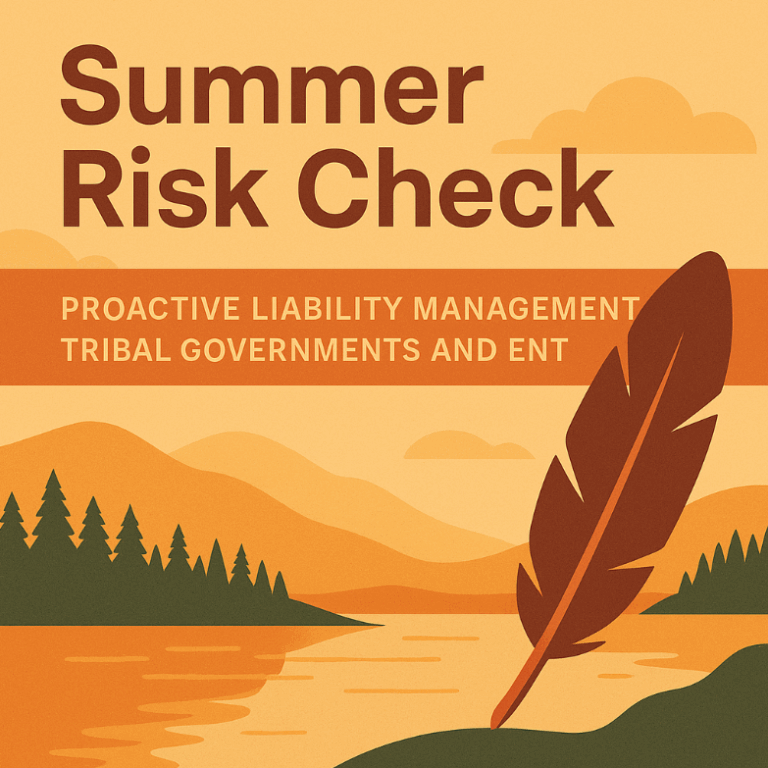
In the dynamic sectors of hospitality and gaming, delivering exceptional guest experiences is paramount. However, achieving this goal requires a robust framework of risk controls to safeguard both patrons and operations. Implementing effective risk management strategies not only enhances safety but also significantly reduces the Total Cost of Risk (TCOR)—a critical factor in maintaining profitability and operational continuity.
Here we explore actionable strategies employers can implement to mitigate risks, foster a safe working environment, and drive long-term business success.
Understanding Total Cost of Risk (TCOR)
Total Cost of Risk (TCOR) encompasses all expenses associated with managing risks, including insurance premiums, retained losses, risk control investments, and administrative costs. Proactively managing these components yields substantial financial savings and operational efficiencies.
Key Risk Control Strategies with Actionable Steps
1. Data Integrity and Analysis
Why it matters: Data is the backbone of any effective risk management strategy. Accurate, actionable data allows organizations to identify patterns, anticipate risks, and implement timely interventions.
Action Steps for Employers:
-
- Perform Operational Risk Assessments: Conduct comprehensive audits of daily operations to uncover potential risks in guest services, housekeeping, and food & beverage operations.
-
- Involve Frontline Staff: Engage staff in risk identification processes—they often have firsthand knowledge of operational risks.
-
- Implement Operational Simulations: Conduct scenario-based training (e.g., emergency evacuations) to test operational resilience.
3. Fostering a Customer-Focused Safety Culture
Why it matters: A strong safety culture reduces incidents and enhances guest satisfaction, directly influencing business reputation and revenue.
Action Steps for Employers:
-
- Leadership Commitment: Management must visibly support and participate in safety initiatives.
-
- Safety Champions Program: Identify and train employees as “safety champions” to promote best practices across all departments.
- Recognition Programs: Reward teams or individuals for meeting safety goals, reinforcing positive behavior.
Comprehensive Risk Control Services and Employer Actions
1. Accident Investigation and Management
-
- Action: Develop a standardized post-incident review process to capture learnings and update policies accordingly.
2. Behavioral-Based Safety Observations (BBSO)
-
- Action: Implement daily safety walkthroughs where supervisors observe and coach safe behaviors.
3. Emergency Preparedness
-
- Action: Host quarterly emergency drills, ensuring all employees know their roles during crises.
4. Ergonomic Assessments
-
- Action: Conduct ergonomic training sessions for staff to reduce injuries, particularly in housekeeping and kitchen operations.
5. Human Trafficking Prevention
-
- Action: Partner with local law enforcement to provide training on recognizing and responding to trafficking indicators.
6. Liquor Liability Controls
-
- Action: Provide Responsible Beverage Service (RBS) training for all bar and restaurant staff.
7. Slip, Trip, and Fall Prevention
-
- Action: Schedule regular inspections of high-traffic areas and implement non-slip flooring solutions.
8. Workplace Violence Prevention
- Action: Offer de-escalation training and establish clear reporting mechanisms for workplace violence concerns.
Real-World Implications: Learning from Industry Cases
-
- Regulatory Compliance Failures: Crown Melbourne was fined $2 million for allowing self-excluded gamblers back into its premises, emphasizing the need for robust control systems and compliance adherence.
- Operational Risks: Star Entertainment faced severe financial losses due to operational oversights and regulatory breaches, highlighting the necessity for comprehensive risk management frameworks.
Practical Tips for Reducing TCOR Immediately
-
- Have knowledgeable representation negotiate with Insurers: Provide evidence of effective risk controls to negotiate lower premiums.
-
- Leverage Technology: Use IoT sensors for real-time monitoring of high-risk areas like kitchens and pools.
- Outsource Specialized Risks: For complex risks like cybersecurity, consider outsourcing to specialized providers to mitigate exposure.
Conclusion: Action-Driven Risk Management for Success
Reducing the Total Cost of Risk (TCOR) requires more than policies—it demands actionable strategies, a proactive safety culture, and continuous improvement. Employers in the hospitality and gaming industries can drive sustainable growth by embedding risk management into daily operations.
-
- Conduct Regular Data Reviews: Set monthly or quarterly reviews of incident and claims data to identify risk trends.
-
- Invest in Data Analytics Tools: Leverage platforms that integrate operational data, allowing real-time monitoring of risks.
-
- Develop Key Risk Indicators (KRIs): Establish KRIs to monitor potential risk areas before they escalate into major issues.
2. Operational Insight
Why it matters: Deep operational insight allows businesses to tailor risk management practices to their unique needs, improving both safety and efficiency.
Action Steps for Employers:
-
- Perform Operational Risk Assessments: Conduct comprehensive audits of daily operations to uncover potential risks in guest services, housekeeping, and food & beverage operations.
-
- Involve Frontline Staff: Engage staff in risk identification processes—they often have firsthand knowledge of operational risks.
-
- Implement Operational Simulations: Conduct scenario-based training (e.g., emergency evacuations) to test operational resilience.
3. Fostering a Customer-Focused Safety Culture
Why it matters: A strong safety culture reduces incidents and enhances guest satisfaction, directly influencing business reputation and revenue.
Action Steps for Employers:
-
- Leadership Commitment: Management must visibly support and participate in safety initiatives.
-
- Safety Champions Program: Identify and train employees as “safety champions” to promote best practices across all departments.
- Recognition Programs: Reward teams or individuals for meeting safety goals, reinforcing positive behavior.
Comprehensive Risk Control Services and Employer Actions
1. Accident Investigation and Management
-
- Action: Develop a standardized post-incident review process to capture learnings and update policies accordingly.
2. Behavioral-Based Safety Observations (BBSO)
-
- Action: Implement daily safety walkthroughs where supervisors observe and coach safe behaviors.
3. Emergency Preparedness
-
- Action: Host quarterly emergency drills, ensuring all employees know their roles during crises.
4. Ergonomic Assessments
-
- Action: Conduct ergonomic training sessions for staff to reduce injuries, particularly in housekeeping and kitchen operations.
5. Human Trafficking Prevention
-
- Action: Partner with local law enforcement to provide training on recognizing and responding to trafficking indicators.
6. Liquor Liability Controls
-
- Action: Provide Responsible Beverage Service (RBS) training for all bar and restaurant staff.
7. Slip, Trip, and Fall Prevention
-
- Action: Schedule regular inspections of high-traffic areas and implement non-slip flooring solutions.
8. Workplace Violence Prevention
- Action: Offer de-escalation training and establish clear reporting mechanisms for workplace violence concerns.
Real-World Implications: Learning from Industry Cases
-
- Regulatory Compliance Failures: Crown Melbourne was fined $2 million for allowing self-excluded gamblers back into its premises, emphasizing the need for robust control systems and compliance adherence.
- Operational Risks: Star Entertainment faced severe financial losses due to operational oversights and regulatory breaches, highlighting the necessity for comprehensive risk management frameworks.
Practical Tips for Reducing TCOR Immediately
-
- Have knowledgeable representation negotiate with Insurers: Provide evidence of effective risk controls to negotiate lower premiums.
-
- Leverage Technology: Use IoT sensors for real-time monitoring of high-risk areas like kitchens and pools.
- Outsource Specialized Risks: For complex risks like cybersecurity, consider outsourcing to specialized providers to mitigate exposure.
Conclusion: Action-Driven Risk Management for Success
Reducing the Total Cost of Risk (TCOR) requires more than policies—it demands actionable strategies, a proactive safety culture, and continuous improvement. Employers in the hospitality and gaming industries can drive sustainable growth by embedding risk management into daily operations.






